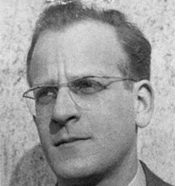Ferenc Vajda
Between 1957 and 1969, he was a scientific associate at the Electronics Department of the Central Physical Research Institute (KFKI) of the Hungarian Academy of Sciences, and later a senior scientific associate. After that, he was the scientific head of the Measurement and Computing Research Institute (MSZKI) of the Hungarian Academy of Sciences; between 1987 and 1991, he was also a scientific advisor to the director of MSZKi. Between 1992 and 1997, he was the last director of MSZKI. After the dissolution of MSZKI (1997), he became the scientific director of the Computer and Automation Research Institute (SZTAKI).
He received his doctorate from the Budapest University of Technology and Economics in 1968. In 1969, he defended his candidate's thesis in the field of technical sciences, and then in 1988, he became a doctor of the Hungarian Academy of Sciences.
From 1971 to 1973 he was a visiting scholar at McMaster University in Hamilton, Canada. From 1983 to 1985 he was a visiting professor at Florida International University. From 1980 he became the director of the international summer schools at the Interuniversity Center in Dubrovnik.
Between 1974 and 1988, he was an associate professor at the Department of Instrumentation and Measurement Technology, Faculty of Electrical Engineering (VIK), Budapest University of Technology (BME), and from 1988 he was an honorary university professor.
Between 1991 and 1994, he was the director of the Institute of Informatics and Electrical Engineering at the Széchenyi István College (SZE) in Győr.
He devoted his entire life to the research of electronic measurement and control systems and computer technology. At the beginning of his scientific career, he dealt with nuclear electronics. Later, his interest turned to the tools and methods of human-machine interaction; and the theory and various application possibilities of microcomputers, microprocessor systems, microprogramming and parallel architectures. He designed and led numerous small series of measuring instruments and microcomputer systems (such as: reactor period meter, microprocessor emulation development system, digital image processing system).
He created a significant scientific school at home; he initiated a large number of doctoral students and researchers with scientific degrees into their careers, and helped them in their research work. His students and colleagues loved him because he guided them with great love and personal care.
He was a member of several committees of the Hungarian Academy of Sciences. In 1973, he was a founding member, and for many years, he was the vice-chairman of the Board of Directors of the Euromicro Association, the first - and for a long time the only - international computer science and technology association founded in Europe.
His well-known professional book is Microcomputers, written together with Antal Csákány (Technical Publishing House, Budapest, 1976). He also wrote Games with Computers (Technical Publishing House, Budapest, 1980) with Csákány.
His awards: Institute Award (KFKI, 1971 and 1977); Excellent Inventor Gold Award (Minister of Education, 1975); Technical Book Publishing House's Standard Award (1978 and 1981); Tivadar Puskás Award (Híradástechnikai Súdómányos Egyesület (HTE), 1981); HTE Gold Badge (HTE, 1986).
Created: 2016.04.22. 21:34
Last modified: 2024.07.20. 23:09

